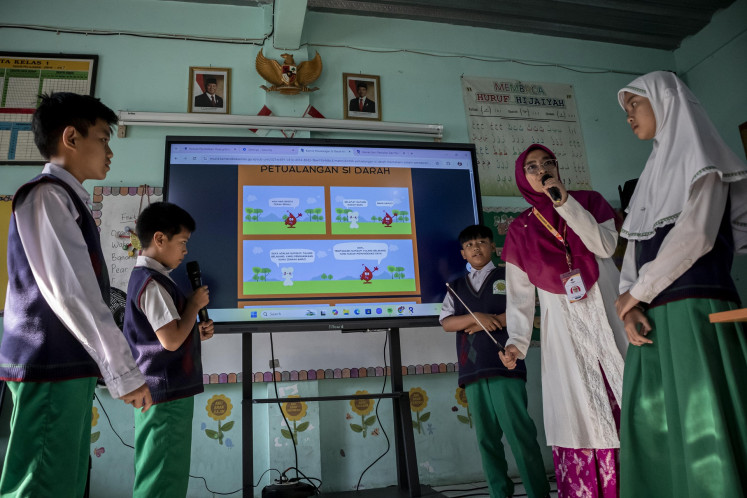Govt brings in domestic coal market obligation
The Energy and Mineral Resources Ministry has issued a ministerial decree requiring producers of coal and other minerals to allocate a proportion of their annual production output to the domestic market, or face sanctions
Change text size
Gift Premium Articles
to Anyone

T
he Energy and Mineral Resources Ministry has issued a ministerial decree requiring producers of coal and other minerals to allocate a proportion of their annual production output to the domestic market, or face sanctions.
The decree, signed on Dec. 31, 2009, states that the proportion for the so called annual domestic market obligation (DMO) will be equal to the estimate of annual demand proposed by potential domestic buyers a year earlier.
Both the producers and domestic consumers are bound to the DMO and failure to comply will result in sanctions. Sanctions will vary from a written reprimand to a production cut of up to 50 percent for producers, and up to 50 percent supply reduction for consumers in the following year if they failed to purchase the commodity at the agreed volume.
The DMO obligation was initially to be introduced through the im-plementing regulations of the Mining Law.
“The implementing regulation will only provide macro policy, while the decree provides detailed guidelines for implementation,” said the director general for coal, minerals and geothermal at the ministry Bambang Setiawan.
Domestic coal demand is expected to reach 75 million tons this year, approximately 30 percent of the estimated total production of 250 million tons. In 2009, coal production was 254 million tons while domestic demand was 56 million tons.
Producers in the manufacturing industries have been complaining of lack of energy supplies and fuels, particularly coal and gas, to keep their production targets on track. It was partly prompted by the disparity between domestic and market prices, with exporters generally being able to sell at a higher price than in the domestic market.
Witoro Soelarno, the secretary to the directorate general for minerals, coal and geothermal, said that the existing coal and mining contracts actually had stated that “the producers must put priority on the domestic market”.
“But, the details of the DMO obligation were not explained and this led to different interpretations in implementation. The decree is expected to give legal certainty for producers and consumers,” Witoro said Thursday.
The Indonesia Mining Association (IMA) executive director Priyo Pribadi Soemarno responded to the introduction of the new regulation on the DMO obligation by saying that coal and minerals producers would have no problem with it as long as the price would not be capped.
“The DMO can be seen as just another target market as long as the price is floated in the market price,” he said.
Priyo added that the government should also guarantee that the output allocated for the domestic market would be able to be reallocated if and when domestic buyers failed to fulfill their commitments to complete orders as planned.
Bob Kamandanu, chairman of the Indonesian Coal Producers Association (APBI), voiced a similar argument.
“If the domestic buyers use the market prices, the producers will happily sell their output to the domestic market as the location is close and this will cut the delivery time,” he said.
The government said the price of minerals will stay regulated through another ministerial decree to be released later.









